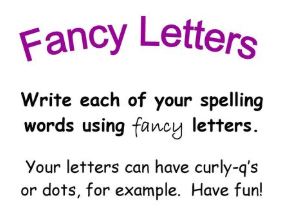This week, we have been focusing on words that contain the ough letter string, in preparation for a test on Friday 20th November 2020.
thorough
although
sought
brought
drought
through
fought
thought
13 November 2020
Use last week’s spellings and write them in dotty writing.

Year 1
- is
- love
- me
- my
- no
Year 2
- school
- she
- so
- some
- the
- there
- their
- they
- to
- today
06 November 2020
This week, we’ve been learning about the different ways to write the ‘o’ sound. Because spelling in the English can be tricky, there’s lots of ways to write the ‘o’ sound in our spelling (oe, o, ow, oa). This week, we’d like you to practise the following words to help consolidate this learning. Remember, the words may appear ‘random’, but we are being exposed to different ways of writing similar sounds.
notice suppose though although
homeless hero goes glowing
To keep it fun, practise these spellings in different ways, check out the ‘super spelling strategies’ on this week’s spelling post (go to the Scholes website, learn more, spelling, Year 3 & 4). Children should practise in preparation for a test on Thursday 12 November 2020.
Fancy a challenge? Use these words in sentences. Or, create silly sentences using as many of them as you can – can you use them all?
This week, we have been focusing on words that contain a suffix to make them plural, in preparation for a test on Friday 13th November 2020.
colonies
surveys
stories
delays
communities
babies
opportunities
dictionaries
06 November 2020
This week’s spellings are more common exception words (words that don’t follow the usual spelling rules). There are lots of ideas in our super spelling strategies to help you child learn them.
Year 1
- is
- love
- me
- my
- no
Year 2
- school
- she
- so
- some
- the
- there
- their
- they
- to
- today
16 October 2020
Next week, we would like children to continue focusing on adding prefixes to words. Children can practise the list of the words below, in preparation for a test on Thursday 22nd October 2020.
inactive
incapable
impossible
immobile
irresponsible
irrational
illegal
illogical
16 October 2020
This week, we’ve been recapping one of our key spelling rules: adding –ed or –ing to change the tense of a verb.
Here’s an example…
| infinitive verb | present tense | past tense |
| to walk | walking | walked |
First, we’d like you to complete this table. Be careful, there may be some irregular ones to catch you out!
| infinitive verb | present tense | past tense |
| to jump | ||
| talking | ||
| to climb | ||
| to pour | poured | |
| running | ||
| to achieve | ||
| explained |
Then, practise these spellings in different ways, check out the ‘super spelling strategies’ on this week’s spelling post (go to the Scholes website, learn more, spelling, Year 3 & 4). Children should practise in preparation for a test on Thursday 22 October 2020.
Fancy a challenge? Use these words in sentences. Or, create silly sentences using as many of them as you can – can you use them all?
16 October 2020
Use last week’s spellings and write them in fancy writing – any you choose!

Year 1
- has
- he
- here
- his
- house
Year 2
- of
- push
- once
- put
- one
- said
- our
- saw
- pull
- says
09 September 2020
Next week, we would like children to continue focusing on words that contain a suffix, such as ed or ing. Children can practise the list of words below, in preparation for a test on Friday 16th October 2020.
according
achieved
criticised
developing
embarrassed
crazier
bravest
loveliest
09 October 2020
This week, we’d like your child to practise the following spellings in preparation for a spelling test on Friday 09 October 2020.
| believe | complete | extreme | relief |
| breathe | appear | increase | quickly |
For some ideas on how to practise spellings in different ways, check out the ‘super spelling strategies’ on this week’s spelling post (go to the Scholes website, learn more, spelling, Year 3 & 4).
Fancy a challenge? Use these words in sentences. Or, create silly sentences using as many of them as you can – can you use them all?